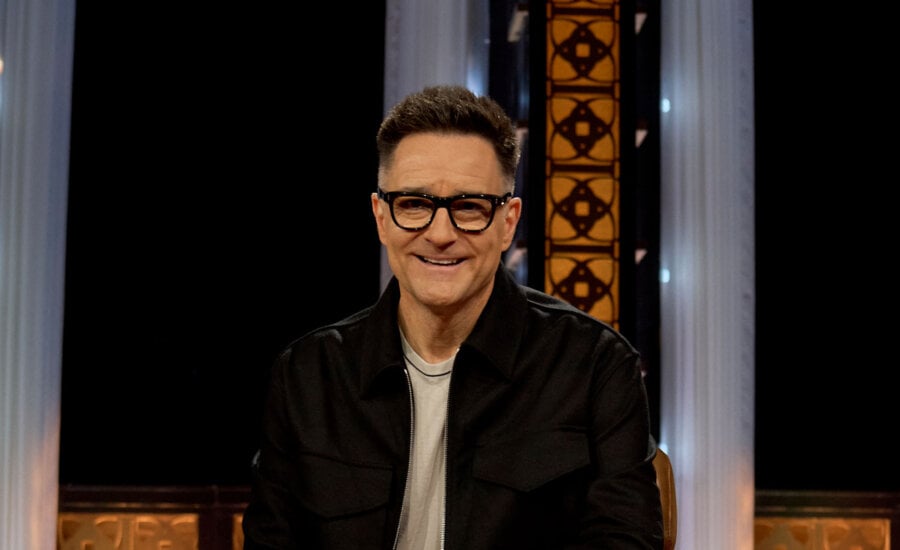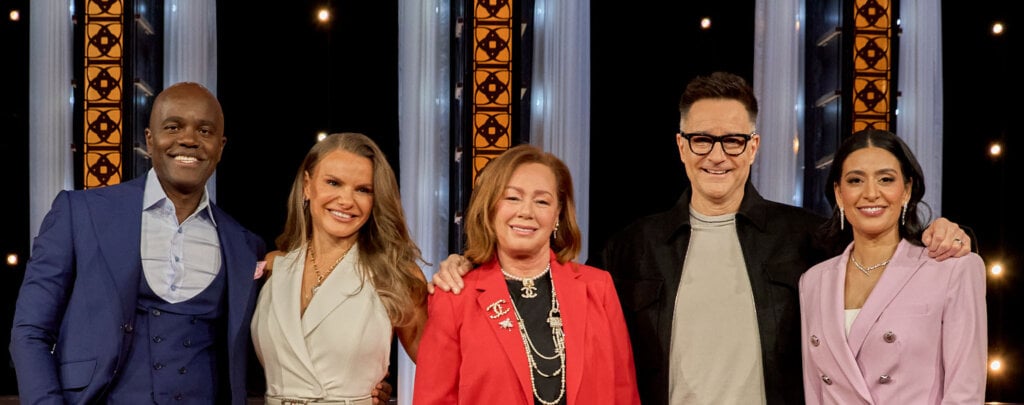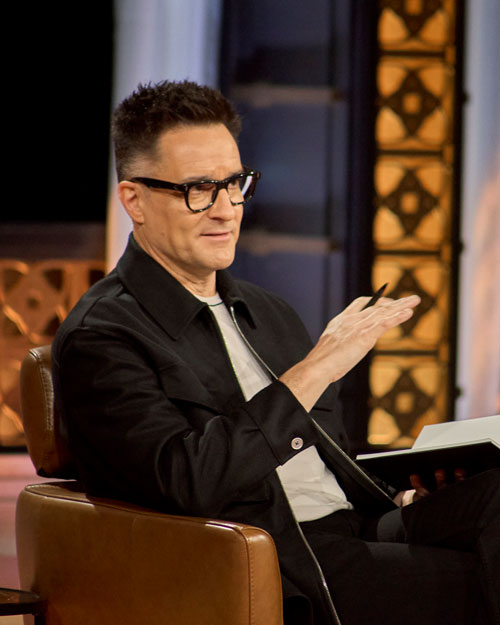“I have the dream job”: Brian Scudamore on making meaning with your money
What does the founder of 1-800 Got Junk think about money? Find out why he’d never buy a Ferrari and calls himself frugal.
Advertisement
What does the founder of 1-800 Got Junk think about money? Find out why he’d never buy a Ferrari and calls himself frugal.

Brian Scudamore describes himself as frugal and says he loves finding meaning in things, from relationships and experiences. So, it’s no surprise that he grew a small business he started at the age of 18 into a $700 million franchise and commercial removal company by finding value in the things that others want to trash. He spoke with us for his My MoneySense profile just as his first season on Dragon’s Den launches (September 26, 2024). He discusses intentional spending, perks of being frugal, and a recent pretty-sweet splurge.

One of my fellow “dragons,” Wes Hall, who I got to know a little bit this year, during filming. I’m so inspired with how he spends money. He’s very different from me in the sense that he’s got the fancy cars and the big mansion and so on. I drive my Ford pickup truck and I have a modest home. But I’m inspired by how he puts charity first. He takes care of other people before he takes care of himself. He grew up in Jamaica. He didn’t have a lot, but he says, “This is about helping others.” He’s made it, and I think that’s what money is all about.
I love traveling. I love eating. For example, this summer, I went to France with my family. It was just a combination of family, friends, great food, some wine, practicing my French. That ties in everything I love.
My wife and three kids—we were in Paris as a base, we went down to Cap Ferret, which is just south of Bordeaux—a beautiful little peninsula, beach town. We hung out in Lille for a little bit to watch the Olympic basketball. We spent time in Bordeaux and went to some wineries. Paris is such a well-travelled place, so we had dinners with different friends and their families who were in town. I just I love that country.
My dad, who’s a liver transplant surgeon, is not an entrepreneur or a business person. But he taught me early on to be purposeful with money. What am I doing with even the cheques I would get from aunts, uncles and grandparents for the holidays? He had me write thank-you notes, which no kid likes to do. I had to tell them how I was using the money they gave me.
My dad really hammered into me to save that money for education. And I did, but it was really ironic, because here I am, a high school dropout, a university dropout. But I valued learning about money from my dad and just being wise with how I spend it and being purposeful.
But one of my early memories was when I saved up my life savings as an eight-year-old and bought a brand-new bike. A couple of days later, I put a big basket on it so I could deliver newspapers more efficiently. I put that prized bike to work. I learned from my dad that money was about investment—a purposeful investment.
There’s also a frugal side of me that thinks, “Do I really need that?” Fancy cars wouldn’t bring me joy. Would I rent a Ferrari for a day on the coast of Italy? Heck, yeah. Would I ever buy one? No. And he got me to think about the value of money and what you can do with it.
Nothing different. I have the dream job. I am so excited to be a “dragon” and to help inspire others, give some wisdom, shared learnings to the pitchers on Dragon’s Den. I love building and growing my companies. Not to make more money, but to grow opportunities and possibilities for other people, and for the freedom to travel and spend time with family and friends, which I love to do.
My first job would have been a paper route, and the money went toward that bike. It was 100 bucks, I remember. Back then, that was a lot of money and it was a pretty good bike. Then I was wrestling with the whole idea of putting a big basket on it and ruin the look of my bike. But it helped me make more money.
When you start a business, you pay your people first. I remember there was a time when money was so tight. I mean, I was running out of cash, and I was making mistakes. I was 24 years old, and I had 10 paycheques to myself with a rubber band around them in my desk. I couldn’t afford to cash my own paycheques. And the lesson for me was just how important money is to the people that you work with when you start a business. If I had paid myself first, I could have either bankrupted the business or lost my valuable employees.
I’m going to go back to my dad again. This is funny, because he worked hard in college, became a doctor and a liver transplant surgeon. He used to work construction jobs because he had to pay for everything himself. I really admire and respect his values on money.
He once told me, “Only invest when you’re investing in something with what you can afford to lose.” I was 19 years old, and I invested in a gold stock. I worked at a coffee shop at the time as a side job, and someone came up to me and really pitched me on this idea, and I invested $1,500 which was a lot of money for me at 19—and I lost it all.
Years ago, a president in my company tried to convince me that I needed to raise money for 1-800-Got-Junk to survive. I didn’t take that advice. I pushed against it for a long time, until I had to get this person out of my business, because clearly we weren’t aligned. I would have lost control of my business, and we wouldn’t be here today, if I had taken that advice.
What’s important to me, as I reflect, is that you don’t always have to take advice given from really smart people. You still have to trust your gut.
I trusted my gut and got rid of that person, hunkered down on my expenses, and we ended up doing just fine.
I would rather have the large sum of money all at once, because then I could control what I do with that money, where I invest it or what good it could do in the world, versus someone else controlling that.

That’s an easy one. Having a rainy-day fund. I’ve certainly learned from smart financial people we have in our business and from other mentors to put money aside for a rainy day. Have some money set aside as a buffer for when things don’t go as planned.
I don’t have a rule of thumb in terms of percentages or anything, but it’s got to be sizable enough to protect against some unexpected downside.
People believe money can provide more happiness than it actually does. It’s one thing to pay the bills and put food on the table, of course. But once you get to a certain amount of money, I think there’s a lot of people that think they’ll be happy once they take that big trip or can afford to get married, buy the house. You’ve got to enjoy the journey of creating that money and spending that money and not just wait for someday.
I’m not a regret-type person. Every mistake I’ve made, every tough decision or challenge in my life, I’ve learned something. No, I don’t have regrets.
Value, to me, is meaning. I often say, “Make meaning, not just money.” I would rather provide value to an employee or to a franchise owner, so they say, “Wow, that wasn’t just a transaction. That was Brian and the team wanting to help me. They’ve made a difference in my life.”
Meaning is when you take those special dinners and trips, it’s the memories you create with amazing people, versus what you take home as a souvenir.
At 24, in Vancouver, I bought a home. This business I had created for five years then was actually starting to pay off. It was providing for me, for my family.
My relationship with debt has always been, “I don’t want too much of it, and the burden and pressure from it.” So, I’ve been one to try to grow my business organically without taking on a lot of debt. I mean, it took me eight years to get my business to $1 million in sales on the top line. I could have taken debt and maybe grown it more quickly. But my worry, and why I didn’t do that, is that you then spend money a little less cautiously, less intentionally. And being frugal can help you make smarter, better decisions.
We rented a place in Greece for a week—a nice Airbnb on the water. We invited two other families to join us, and it was our treat. That felt like a wonderful splurge, where family and friends could all swim in the Mediterranean and eat lots of Greek salad and drink some great Greek wine. It was lovely.
That’s what makes life special, and that’s the “meaning” of money.
I’m not a big reader, but I buy books. My wife’s a voracious reader—I’m a voracious book buyer. Oh, it’s not really money-related, but it’s called The Art of Focus by Dan Koe. I’m certainly skimming through sections. Money is something that requires a lot of focus in the intention of what you’re saving for, how you’re spending it, what meaning you’re creating from it. So, it’s not a money book, but I think it can apply.
I have an Air Tag in my wallet, so I never lose it. I’m not one to lose things, but I am busy, I travel a lot. I can go, “Where’s my credit card? Found it.”
This is a weird one: my iPhone. It connects me to the things that really matter, my friends, my family. I can FaceTime, text people. I can Google information. I don’t have a car or a house or another thing that I really value.
Own.
Buy.
Invest.
Budget.
Share this article Share on Facebook Share on Twitter Share on Linkedin Share on Reddit Share on Email